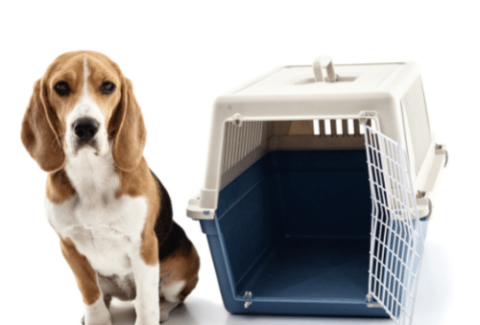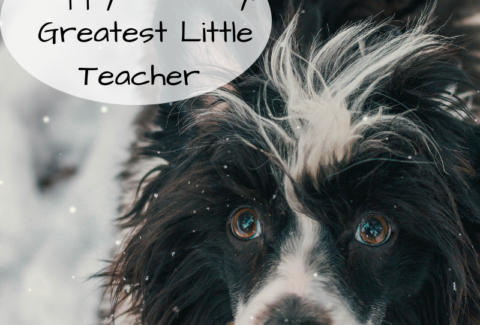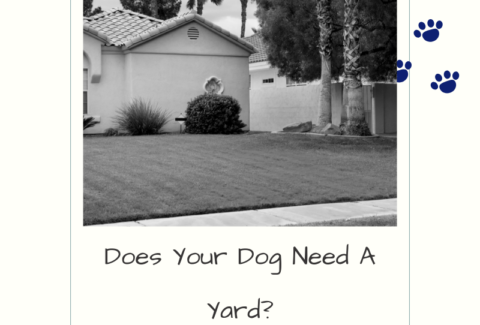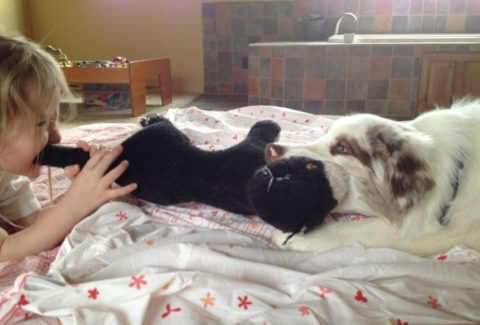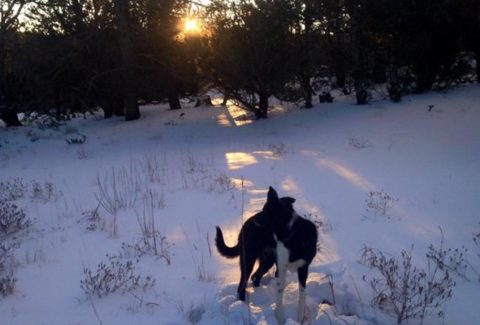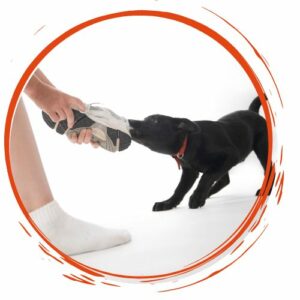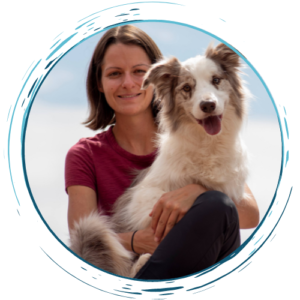Getting A Second Dog – But When?
May 7, 2021 2021-06-26 13:01Getting A Second Dog – But When?
Getting A Second Dog – But When?

I often get asked whether a dog needs other dog friends. This question mostly comes from owners whose dog has some behavioral issues we are working on and who are considering adding another dog to their family to help with the training of the first. My answer for those cases is pretty much always the same: No.
While it is fun to watch dogs play and it is certainly nice when they exhaust each other, a live-in friend adds to the family dynamic in multiple ways.
Here are the most common cases, and my reasons to not recommend adding another dog to your life.
The Rambunctious Puppy/Adolescent
Puppyhood is hard.
(Check out 6 Puppy Training Basics and The Smart Way To Crate Training A Puppy for some tips!)
There is no sugar coating the potty accidents, the waking up during the night, the tiny razor teeth and the puppy’s determination to try every piece of furniture. Puppies can have seemingly endless energy and their mischief can make us gain some grey hairs until they are all grown up. Once we see our puppy play with another puppy and experience the blissful long sleep afterwards, it is tempting to think that adding a second young and playful dog will make life a lot easier.
Please do not do this. Those two dogs would likely become great friends and spend their days wrestling and racing around together. They will also in the process learn to always seek fun and reinforcement from each other – and not from you. It is a lot harder to bond with a dog that has a constant playmate.
There are some doggy games we as humans just cannot compete with – we cannot play wild biting games or run at 35 mph. The more the dogs learn to enjoy these type of games with each other, the harder it will get for us to become equally (or ideally more) interesting. The two young dogs will have the time of their life, but without management of their play time and a lot of interaction with each individual one you could soon be left with two puppies who care much more about racing each other than they care about you.
Even if your puppy does not live with another young dog, you want to make sure his playdates with others are limited to an amount at which he still enjoys playing with you the best.
The Anti-Social One
There are variety of reasons why dogs can dislike other dogs, and this is fixable only to a limited extend. While most dogs can get to a point where they tolerate the presence of another dog and don’t stress, not every one will become fond of sharing their bed with a canine companion. Adding another dog to your family to rehabilitate that first anti-social one is not a good idea. It not only puts the first dog into a situation with no escape options, but is also unfair to the second one. The first dog will likely be stressed and uncomfortable around his new, unwanted housemate and let him know. The second dog just entered a new living situation that is already tense and might get disciplined by the first dog for small mishaps such as entering a room or walking too close by a toy – a recipe for disaster.
When adding another dog to a first, anti-social one, make sure that you have options of management in place that both allow the first one to have time and space to be alone, and protect the second one from the first one’s wrath.
The Grandpa
Your first dog is getting old, and you either want to add a puppy so that if the time comes you are not left without a dog, or you hope that adding the puppy will bring back some youthfulness to the first one.
A puppy is not what an old dog needs. He needs lots of pets and slow walks and soft food. While he may be very tolerant towards a puppy, it is the owner’s responsibility to raise and train the puppy, and to show him which interactions with the older dog are ok. It is never the first dog’s task to “show the puppy the rules” – if you see the youngling pestering the old one, remove the puppy from the situation.
Old dogs are likely in some amount of pain or discomfort and they deserve to enjoy their last months with us in peace and quiet. Don’t task the grandpa with raising a puppy. If you add one, be extra diligent about making sure he behaves appropriately.
When it is a good idea to add another dog
So, when should you get a second dog? This is easy. You should get one when YOU want to have one for yourself. Not to fix the first dog or to make life easier, but because you have the time and resources to invite a second dog into your home. Be prepared to train him just as much as (or more than) the first one, and don’t expect them to become friends (my own dogs definitely are not friends – while they live together very peacefully, they both very much wish the other one would disappear and they could be the only dog once and for all). Be ready to take the second dog just the way that he is and don’t compare him (neither to the first nor any others). Welcome the opportunity to raise and get to know him without expectations.
I cherish the period of getting to know a new puppy. It is like falling in love – every new character trait I learn about and every new adventure we have is unique and marvelous and strengthens our relationship – not because it is objectively great, but because it is *my* dog.
Get a second dog when you’re ready to fall in love with him. You will know when that is.
Happy Training!

